When the University of Macau (UM) was founded 40 years ago, it was just a small local college. Today, it is a comprehensive international university, ranked among the top 350 in the world, and No 37 in Asia. While undergoing a complete transformation over the past four decades, the university has also witnessed a sea change in society. The rapid social and economic development has led to an increased demand for talent, and as the leading public university in Macao, UM has dedicated itself to nurturing outstanding graduates to meet that need. Over the years, UM has graduated nearly 60,000 students, who have gone on to become contributing members of society in different parts of the world.
The First Modern University in Macao
In 1594, the first higher education institution in Macao, St Paul’s College, was established, ushering in a new era of Western‐style higher education in the region. In 1835, the college was destroyed in a fire, with no reconstruction of the building ever attempted. It was not until 1981 that the private University of East Asia (UEA) was founded, restoring higher education in the city that had been interrupted for more than a century.
In March 1981, three gentlemen, namely Wong King Keung, Edward Woo Pak Hay, and Peter Eng Yuk Lun, established UEA, the first modern university in Macao and the predecessor of the University of Macau, on a piece of land leased by the local government to Ricci Island West. The three co‐founders believed that only by nurturing talent could the city realise sustainable development. Many prominent community members, including Ho Yin, Chui Tak Kei, Ma Man Kei, and Stanley Ho, supported the new university by serving on the University Council. Many Chinese community leaders from Southeast Asia also contributed funds.
The establishment of UEA signalled the beginning of modern higher education in Macao. Prof Hsueh Shou Sheng was appointed the founding rector of the university, and English was designated the main teaching language. At the time, UEA followed the British academic system and was comprised of a University College, a College of Foundation Studies, and a Continuing Education College. The majority of the students came from Hong Kong and overseas.
Nurturing Talent Urgently Needed for the Transitional Period
During the transitional period leading up to Macao’s handover, the Portuguese government of Macao was faced with three urgent issues, namely filling civil servant positions with local Macanese or Chinese citizens, making local laws compatible with the new circumstances of Macao, and establishing Chinese as one of the official languages of Macao. None of these could be accomplished without well‐educated university graduates.
In 1988, the government acquired UEA through the Macao Foundation and restructured the university, with the university’s School of Arts, Faculty of Business Administration (FBA), Faculty of Social Sciences (FSS), Faculty of Science and Technology (FST), and Faculty of Education (FED) established one after another over the following years. In 1989, programmes in science and technology and education were launched, with the former designed to nurture science and technology professionals and the latter aimed at strengthening the training of teachers in local secondary and primary schools and kindergartens. Programmes in law and public administrations were also created. In 1990, undergraduate programmes changed from a three‐year system to a four‐year system and the University College was restructured. In 1991, the Faculty of Law (FLL) was established. Before Macao’s handover, there were 2,865 full‐time students at UM, including 539 master’s and doctoral students.
Nurturing Legal Talent for Macao
UM has done a lot of work in cultivating bilingual legal talent. In 1996, it launched the first Chinese
language law programme. In 2003, it launched the Master of Law in European Union Law, International Law and Comparative Law (English language), which targeted students from Macao, mainland China, Hong Kong, and overseas. In 2014, it launched a ve‐year bachelor’s degree programme in law (conducted in Chinese and Portuguese). Ever since its founding, FLL has produced a large number of legal professionals for Macao. Most of the current judicial officers in Macao either graduated from or studied courses in FLL. The majority of Chinese judges, prosecutors, and lawyers in Macao are FLL graduates.
Vong Hin Fai, a lawyer and a Legislative Assembly member, was among the first to graduate from FLL. At the time, there was an acute shortage of Chinese lawyers, judges, and prosecutors in Macao, so Vong decided to apply to the Portuguese language law programme. Looking back, Vong says: ‘We were given the historic opportunity to develop our careers and contribute to the smooth handover of Macao to the motherland.’
Nurturing Local Engineers
Change propels progress, and talent is the driving force for change. Since its founding, FST has produced many outstanding engineers and scientists for Macao. The faculty is now ranked among the top 150 in engineering in the Times Higher Education World University Rankings by subject.
Many graduates of UM’s engineering programmes now hold important technical or managerial positions at major companies in Macao, such as Companhia de Electricidade de Macau (CEM), the only electric power utility company in Macao. Cheang Tak Son graduated from the Department of Electrical and Electronic Engineering in 1993, and went on to complete his master’s and doctoral degrees at UM. He is now a senior engineer at CEM. He says, ‘UM provides a very good learning platform, teachers, and academic environment. CEM provides an excellent and safe working environment in which I can put my knowledge into practice and achieve more with less. It has also helped me grow into a well‐rounded engineer.’
Training Future Teachers for Macao
Another mission during the transitional period was to improve the quality of teachers at private secondary and primary schools, because quality pre‐university education would provide the youth with a head start and help enhance overall education quality in Macao, which could in turn have a positive impact on Macao’s development after the handover. It is against this background that UM took a series of initiatives. In 1990, FED launched a four‐year undergraduate programme to train secondary school teachers. Between 1993 and 1999, the faculty graduated more than 1,000 students. Since its founding, the faculty has graduated more than 3,000 students. Many principals and teachers in secondary and primary schools in Macao are FED graduates.
Lam Kim U, principal of the Concordia School for Special Education in Macao, was among the first to graduate from FED. She says: ‘The guidance of the professors and the new education theories and skills I learned at UM have been infinitely useful to me.’ Ho Weng Si, who graduated from the Chinese language education programme in 1999, is currently a Chinese teacher at Macau Baptist College. She says UM’s education model broadened her horizons and bene ted her greatly. ‘What I have learned from UM professors inspired me to be creative in my own teaching when I became a teacher,’ she says. Chan Keng Lim, a graduate of FST and FED, became UM’s first PhD graduate in education in 2012. After graduation, he became a mathematics teacher at Pui Ching Middle School Macau and was eventually promoted to the position of vice principal. He says: ‘The undergraduate and postgraduate education I received at UM taught me the true meaning of education, which is to light the way for the students.’
Nurturing Chinese‐Portuguese Bilingual Talent
Because of Macao’s unique history, geographic environment, and cultural and linguistic heritage, the responsibility of nurturing multilingual professionals, particularly those proficient in Portuguese, naturally falls on UM, the leading public comprehensive university in the city. The university launched Portuguese language programmes as early as 1981, when it was just founded. In 1990, the Department of Portuguese was established. After 30 years of development, it is now the largest Portuguese teaching institution outside of Portugal and Brazil.
Before the city’s handover in 1999, only Macanese and a handful of Chinese spoke the Portuguese language, and those fluent in the two official languages mostly worked in education or government departments as translators. However, after the handover and the founding of the Macao Special Administrative Region (SAR), the SAR government became increasingly aware of the importance of nurturing bilingual talent. As a result, the number of students applying to translation programmes increased steadily. In recent years, with bilateral trade between China and Portuguese‐speaking countries developing rapidly, the Portuguese language has grown increasingly important, and nurturing Portuguese‐speaking professionals has become an important strategy for promoting the sustainable development of Macao. António Ip, an alumnus of UM’s Department of Portuguese, currently lives in Angola, where he and his friends operate a catering business.
After graduation from UM, he was offered a job as a translator at a company in Angola. While his family and friends were not exactly thrilled about the prospect of him working in an African country, Ip accepted the offer because his eyes were set on bigger goals. ‘My proficiency in Portuguese, thanks to UM’s quality education, quickly earned me the trust of the company. I used my language skills to my advantage to build a social network in Angola, which helped tremendously when I decided to start my own business,’ he says.
Nurturing Social Sciences Talent
FSS is dedicated to nurturing innovative and socially responsible graduates, and its development is closely linked to the development of the Macao society. FSS graduates are distributed across different industries, and some of them have even started their own businesses to give back to society.
Angus Cheong, a UM alumnus who graduated from the English communication programme (the predecessor of the Department of Communication) in 1995, taught at the university for 13 years after graduation. In 2009, he founded Macao’s first research consultancy, which is now a leader in internet research and big data analysis. ‘The education I received at UM helped me develop an innovative mindset. Participating in the activities organised by student organisations honed my leadership skills, which was very useful when I started my own company,’ says Cheong. ‘More than
a decade’s experience in teaching and research also played a crucial role in innovation and entrepreneurship. Today, my company has become an authoritative source of data, especially for those whose job involves internet research and big data analysis.’
Nurturing Future Business Leaders
Through 30 years of development, FBA has nurtured many graduates for the local business community. FBA was the first business school in Macao to be accredited by the Association to Advance Collegiate Schools of Business (AACSB) and the Association of MBAs (AMBA). It is also a full member of the European Foundation for Management Development (EFMD). It has a well‐developed talent training system and o ers programmes at undergraduate, master’s, and doctoral levels. Over the years, FBA has graduated more than 10,000 students, who have found employment in different parts of the world. Some of them have become community pillars, serving as government officials, Legislative Assembly members, university heads, and entrepreneurs.
Anthony Lau, founder and chairman of Paci c Air Holdings Limited, obtained his master’s degree
in business administration from UM in 1990. He credits UM with boosting his confidence about expanding his business. Victoria Mio, director of Asian equities at FIL Investment Management (Hong Kong) Limited, received a bachelor’s degree in accounting and nance from UM in 1992. According to her, at the time, UM’s courses were designed to nurture internationally competitive generalists, with a focus on leadership skills.
Another alumnus, Danny Chau, graduated from FBA in 2000. In 2020, he was awarded a fellowship by the London Institute of Banking & Finance, one of the institutes in the United Kingdom that has gained a royal charter. He is grateful to UM for the quality education which helped lay a solid foundation for his career development.
Entering a New Stage of Student Enrollment
After the handover and the establishment of the Special Administrative Region, Macao entered a new era, and so did UM. With the transitional period now coming to an end, the university was faced with an urgent need to adjust its mission to suit the new circumstances. The university accomplished this goal by introducing new disciplines, improving campus facilities, enhancing the quality of the faculty team and their research capacity, launching a series of new bachelor’s and master’s programmes, reducing tuition fees, and providing scholarships and financial aid. The result of these reforms has been a steady increase in both the quantity and quality of students.
During the early days after UEA’s founding, most of the students came from Hong Kong. But after Macao’s handover, Macao replaced Hong Kong to become the most important source of students for the university. With the steady increase in the quality of teaching and research and the reduction of tuition fees in 2000 and 2001, UM gradually became the favourite choice of local students. Later, the university also raised admission standards for mainland applicants, requiring applicants to reach the admission marks set by first‐tier, instead of second‐tier, universities in mainland China.
An outstanding university should provide quality education at both undergraduate and postgraduate levels, for society needs different types of talent. That is why in 1993, UM increased the number of master’s programmes from one to six, which was greeted with an enthusiastic response. By 1999, the university already offered master’s programmes in 20 major areas, with 400 master’s students enrolled, and over 100 graduates with a master’s degree. Soon, the university began doctoral admission and graduated the first doctoral student in 1997. Since 1999, UM has produced 45,092 graduates, who have made significant contributions to social and economic development in Macao.
An Innovative ‘4‐in‐1’ Model of Education
Over the years, with the support of the Macao SAR government, UM has constantly improved its ‘hardware’ and ‘software’, including talent development strategies, in order to enhance its competitiveness. In 2009, with the support of the central and Macao SAR governments, the Standing Committee of the National People’s Congress adopted a bill that proposed authorising the Macao SAR to exercise jurisdiction over UM’s new campus on Hengqin Island. A groundbreaking ceremony for the new campus was held later in the same year. The approval of the new campus brought unprecedented opportunities for UM. It also shows that the central government attaches great importance to higher education development in Macao.
On 5 November 2013, the new campus became operational, providing UM with more space to implement its unique ‘4‐in‐1’ education model that consists of discipline‐specific education, general education, research and internship education, and peer and community education. On the new campus, UM established Asia’s largest residential college (RC) system, which comprises ten colleges. The RCs and the faculties work in concert to help students achieve well‐rounded development. Huber Hu, a doctoral student in FST, moved into an RC during his undergraduate years. In the RC’s laboratory, he successfully developed unmanned aerial vehicles and electromagnetic guns. He says, ‘The RC’s support helps students develop extracurricular interests.’
A Multi‐pronged Approach to Nurturing High‐level Talent
Human capital plays a pivotal role in Macao’s effort to diversify its economy. To support this endeavour, UM launched the UM Macao Talent Programme in 2015, which has attracted a number of high‐quality researchers, some of whom are doctoral students and postdoctoral fellows from world‐class universities.
In recent years, the university has been improving its curriculum based on the changing needs of the fast‐developing society in order to produce graduates who can make a meaningful contribution to society. In 2019, the university launched a doctoral programme in business administration, a master’s programme in business administration for senior executives, and a master’s programme in data science. It is now actively preparing for the launch of several other new programmes, including a doctoral programme in applied public administration, a doctoral programme in education, a master’s programme in microelectronics, and a master’s programme in financial technology. In addition, with a ‘3+3+3+3’ new research blueprint in place, the university actively trains multidisciplinary talent. In 2019, UM launched a master’s programme in data science to nurture big data talent. In the future, UM will continue to launch joint post‐doctoral training programmes with Tsinghua University and other world‐class universities.
As the anniversary slogan, ‘Set sail anew on the ruby jubilee’, implies: UM is on the threshold of a new era. Looking ahead, UM Rector Yonghua Song says: ‘We want to nurture innovative, high‐calibre graduates to support economic diversification in Macao. But equally important, we want to produce graduates with a love for their homelands, a global mindset, international competitiveness, and a sense of social responsibility. We hope our graduates can use their talents and strengths to develop Macao, serve the country, and contribute to humanity. ’
Source: UMagazine Issue 23
All articles in Set Sail for New Horizons on the 40th Anniversary:
Providing various services to society
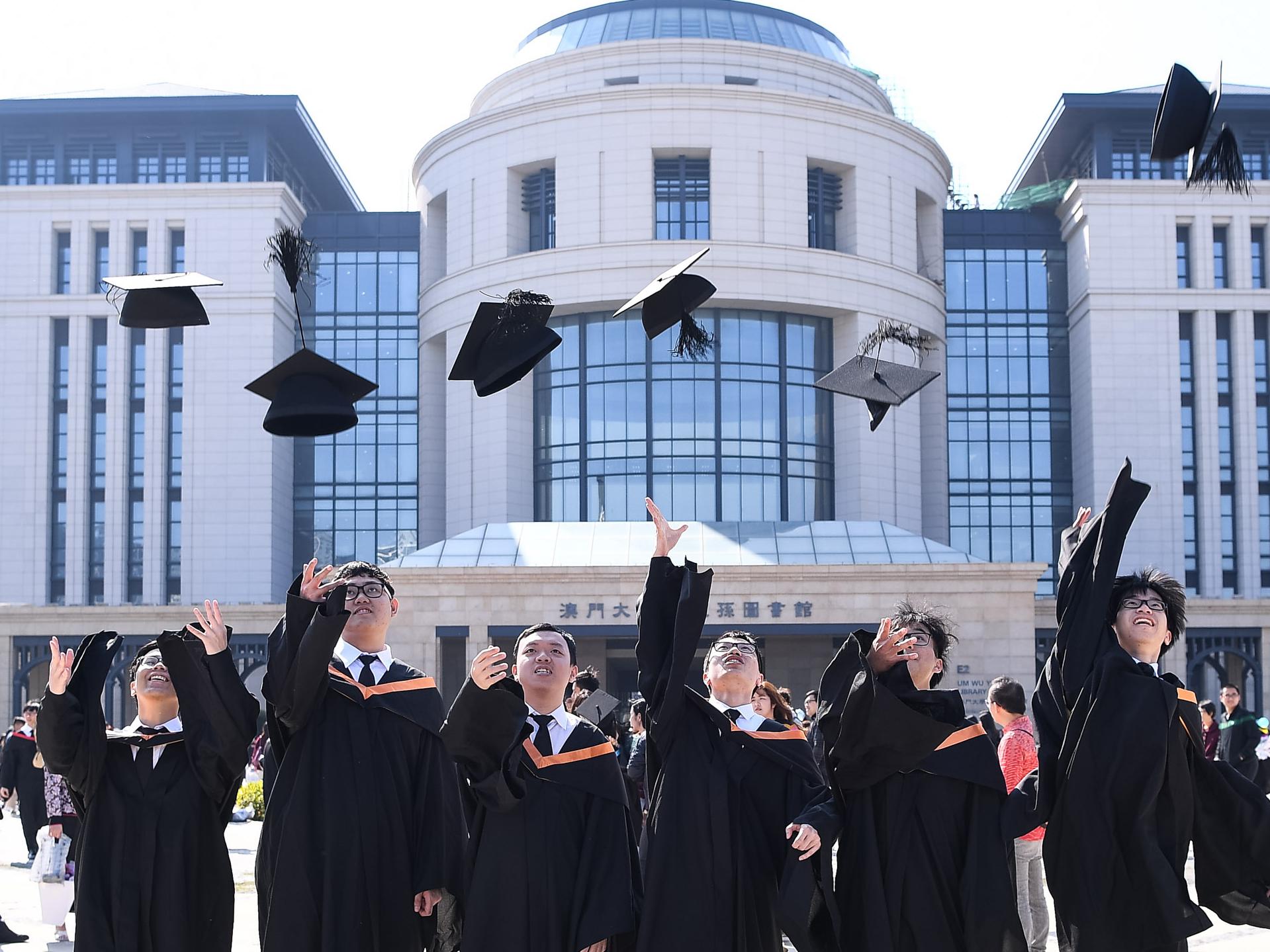
Over the years, UM has graduated nearly 60,000 students.

The establishment of UEA signalled the beginning of modern higher education in Macao
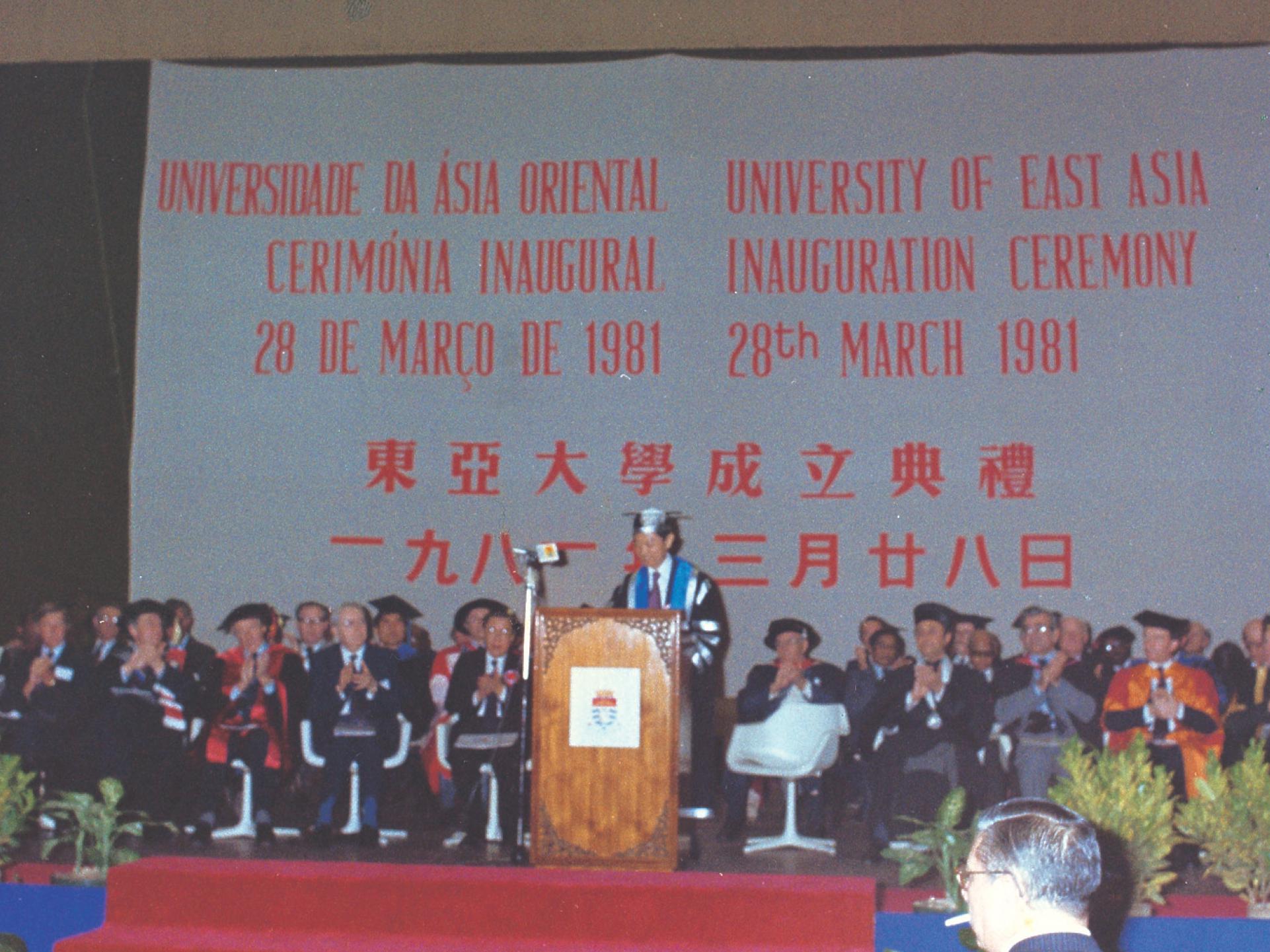
Founding Rector Prof Hsueh Shou Sheng gives a speech at the inauguration ceremony of UEA
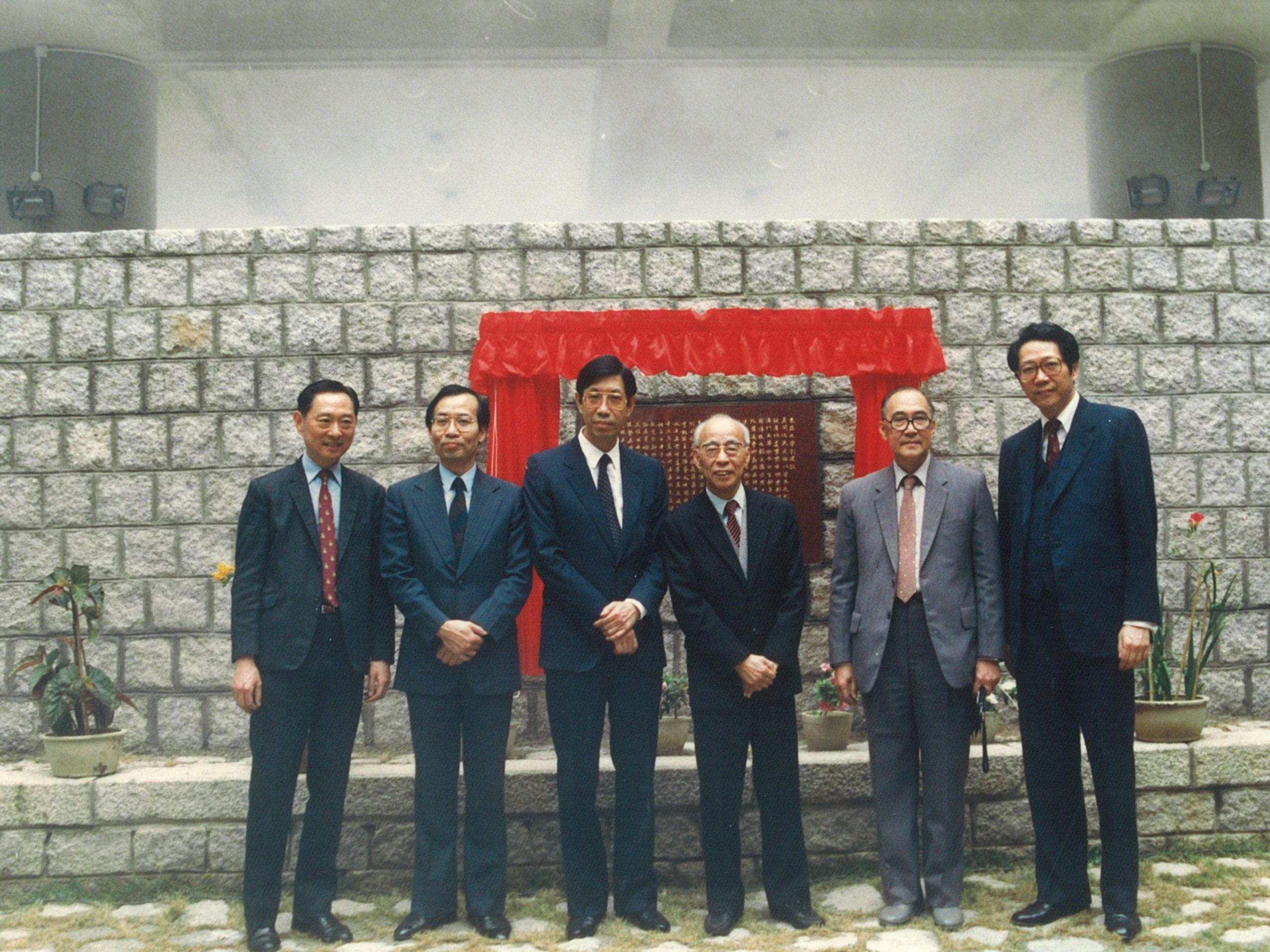
(From left) Prof Hsueh Shou Sheng, Dr Wong King Keung, Dr Peter Eng Yuk Lun, Prof Jao Tsung I, Prof Lo Hong Lit, and Dr Edward Woo Pak Hay at a ceremony to unveil the tablet with t
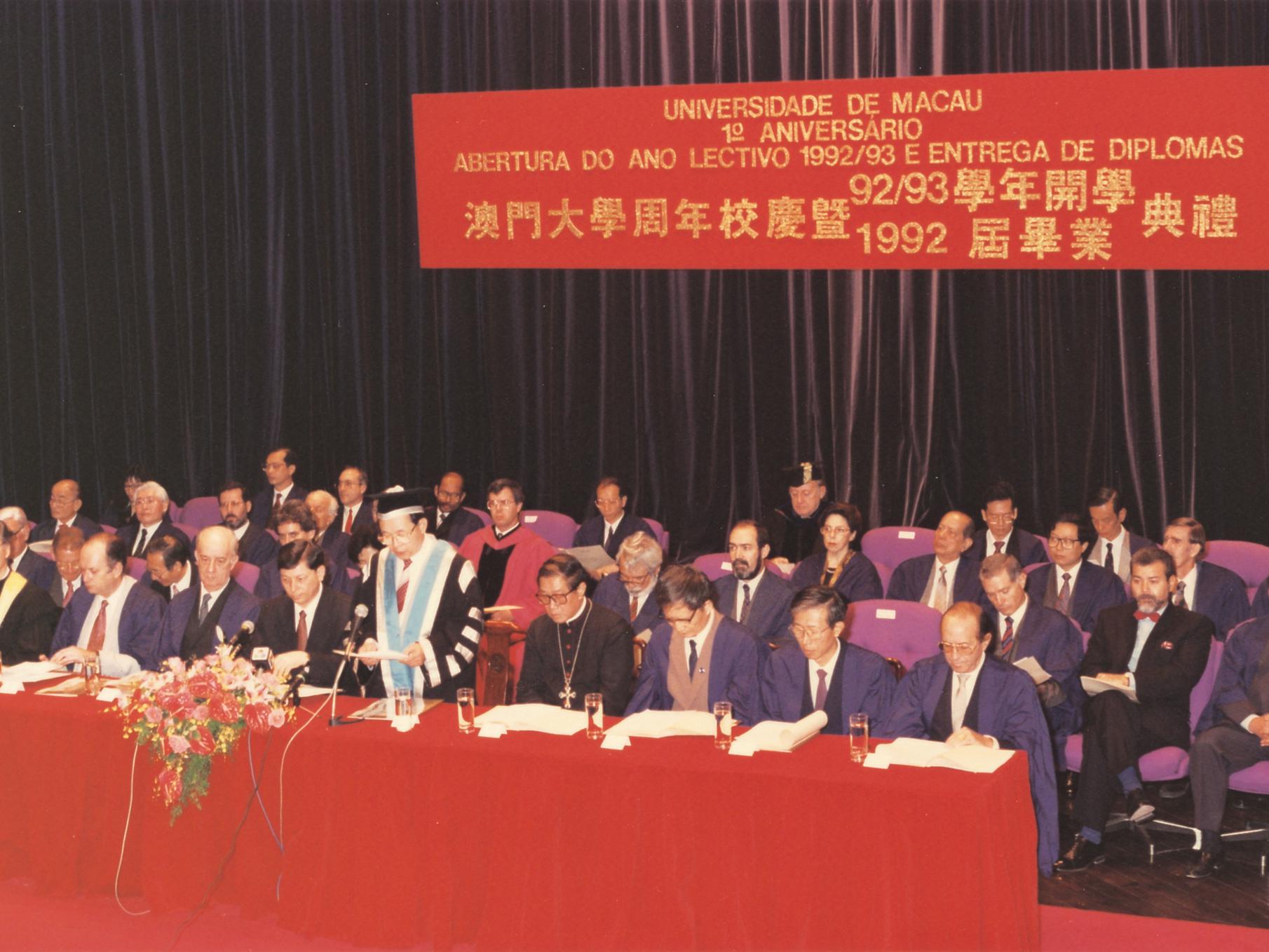
In the 1990s, UM nurtured many talents urgently needed during the transitional period leading up to Macao’s handover
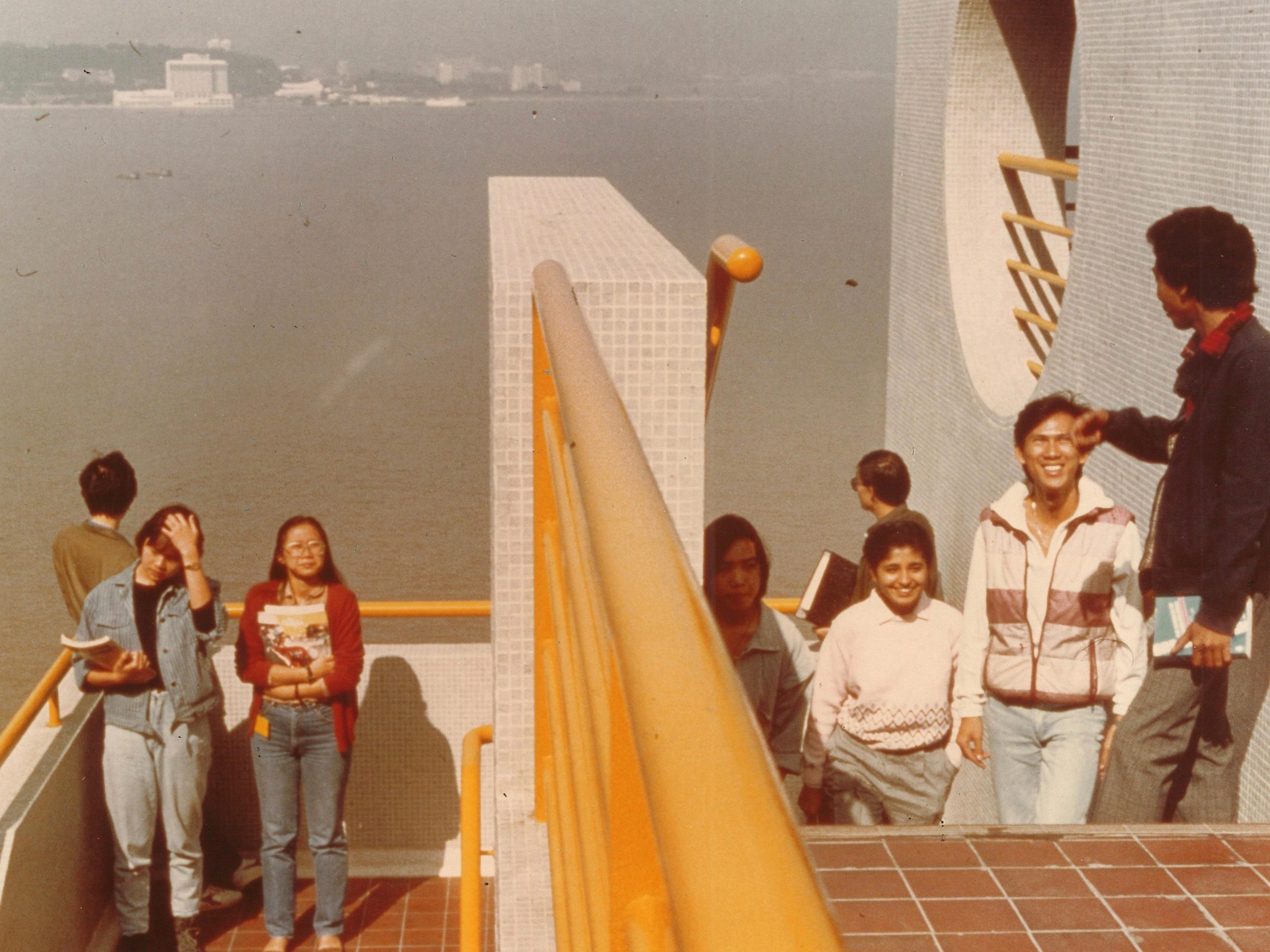
In addition to Macao, the early students of UEA came from Hong Kong and overseas.
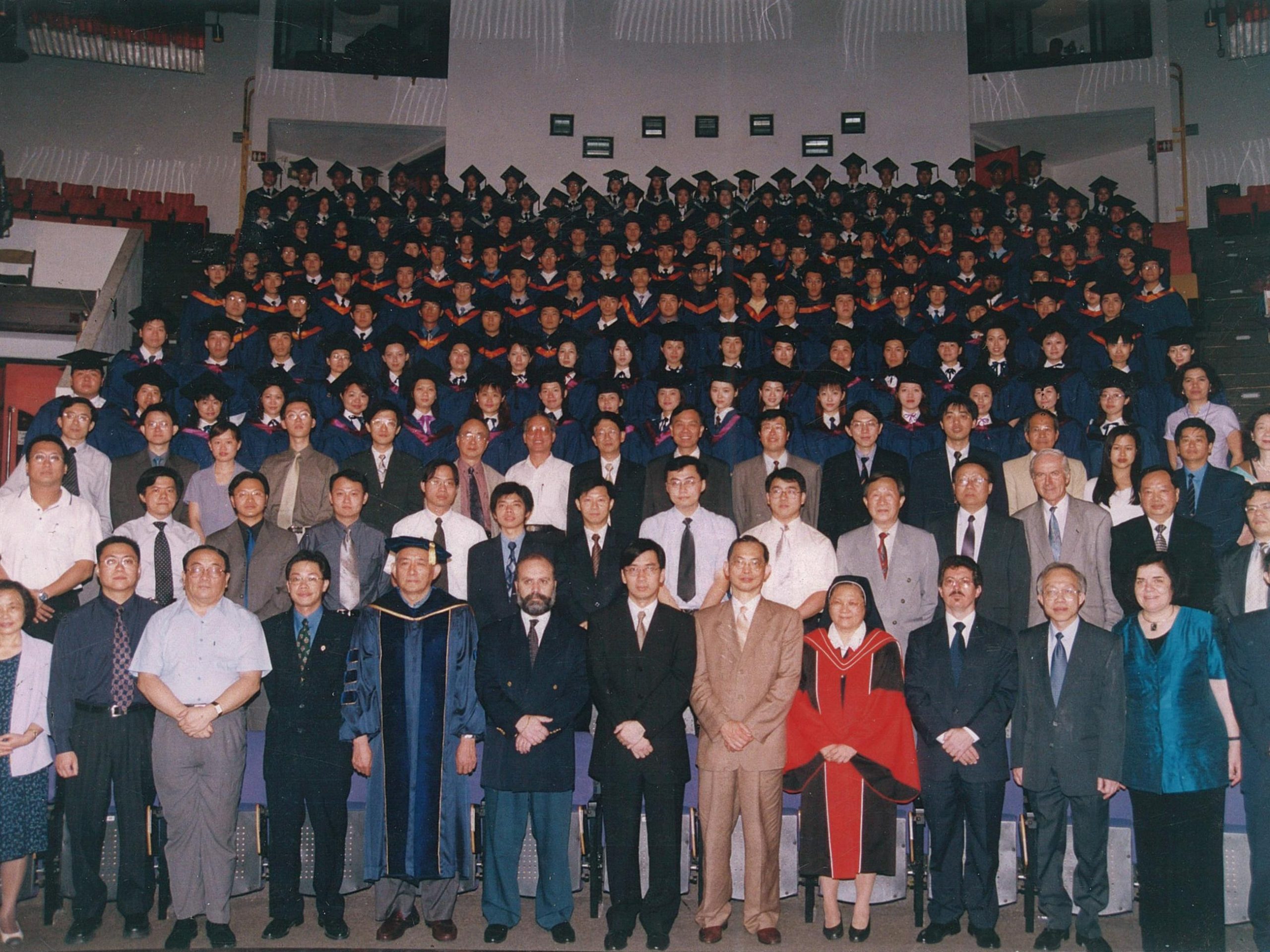
UM became the first choice of local students around the time of Macao’s handover to China
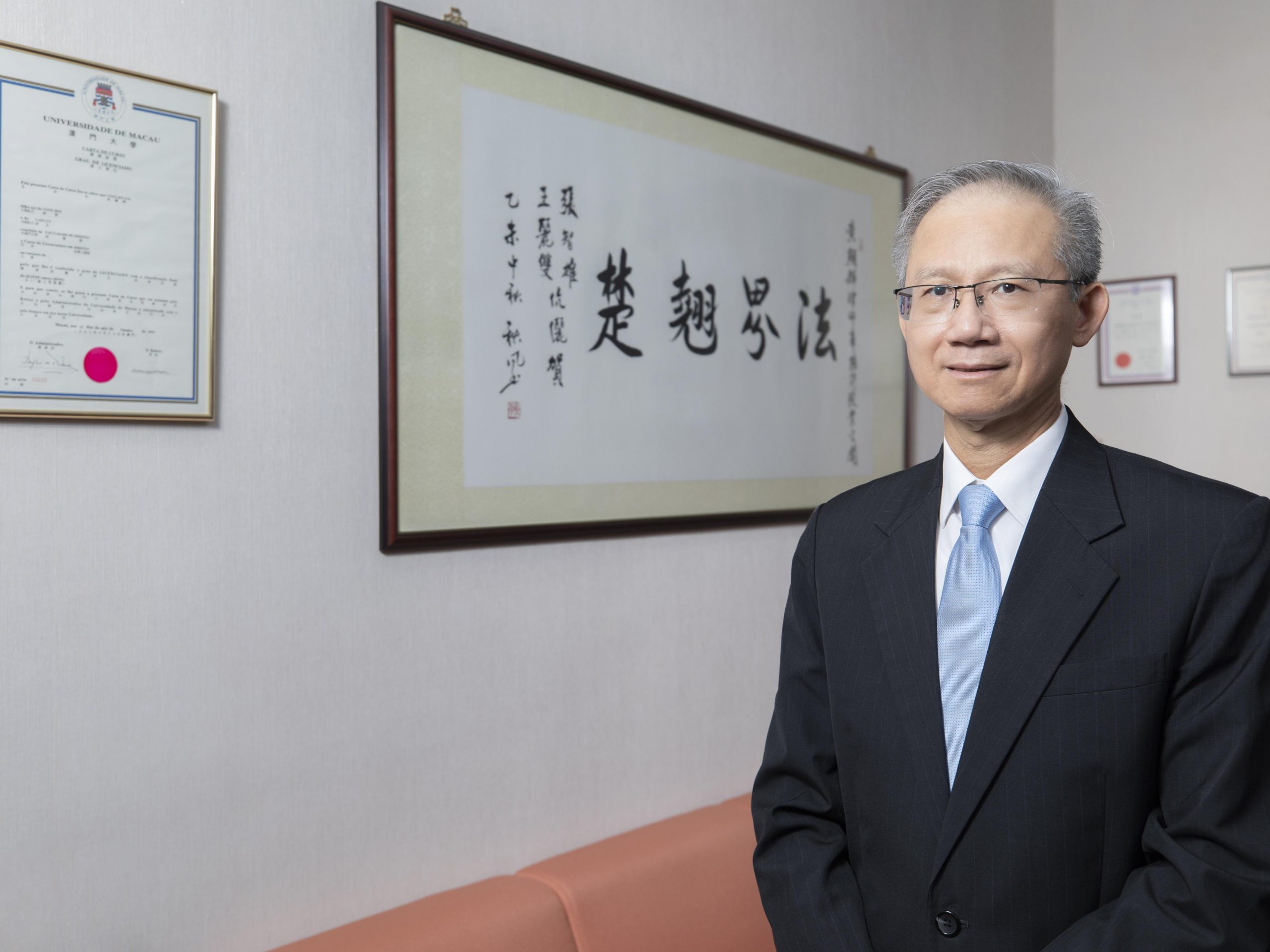
Vong Hin Fai
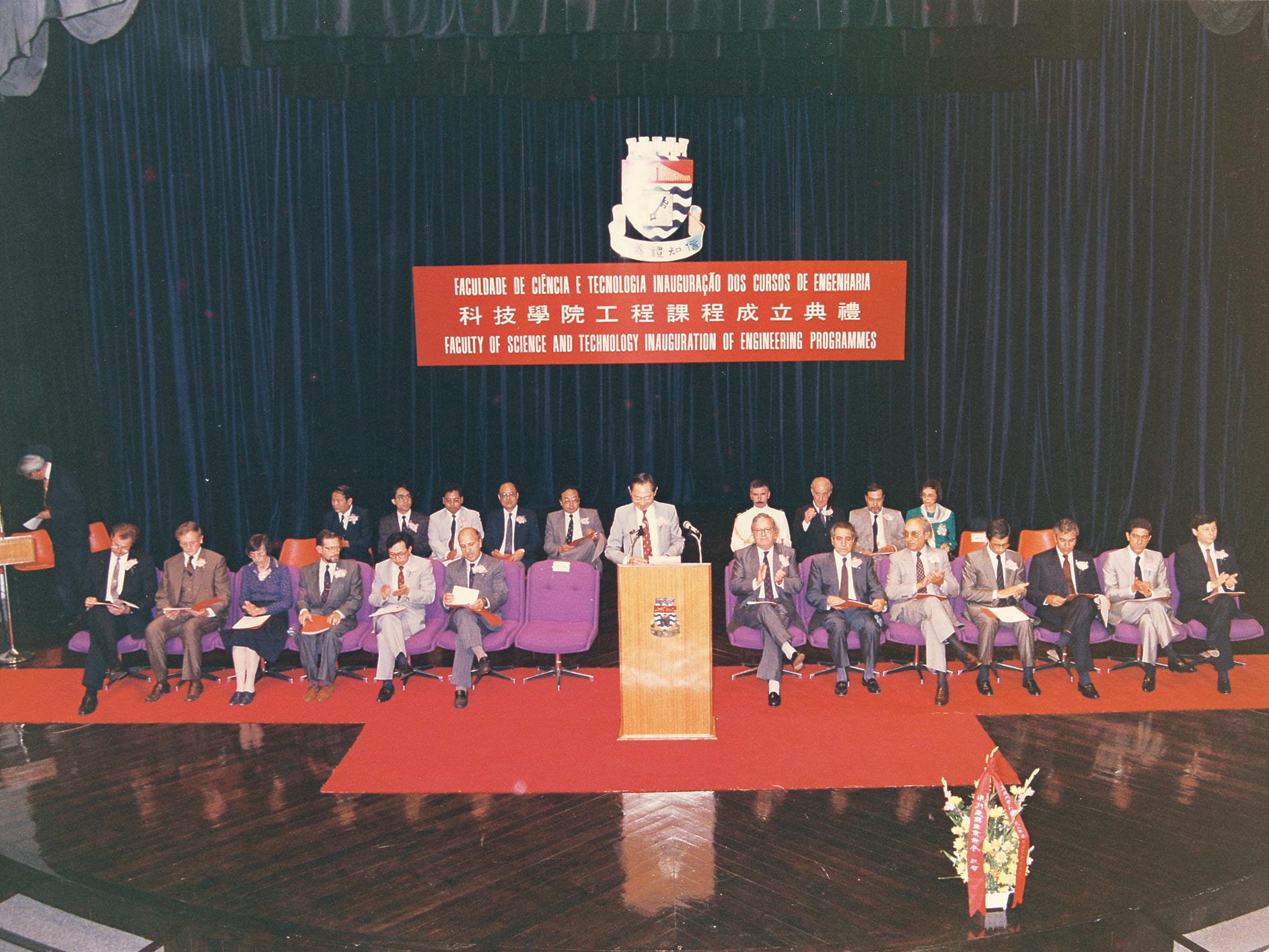
The Inauguration Ceremony of FST's engineering programmes
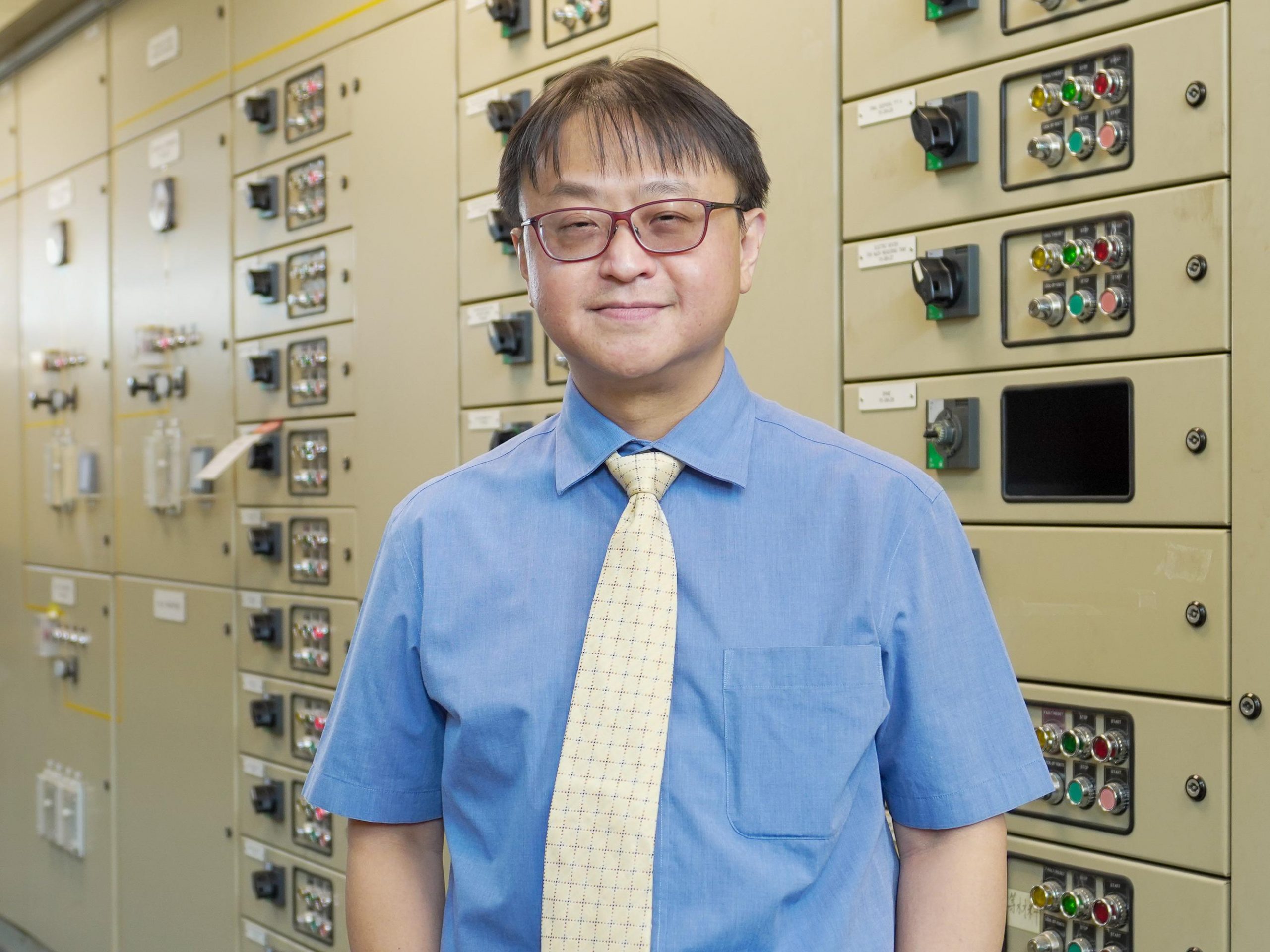
Cheang Tak Son
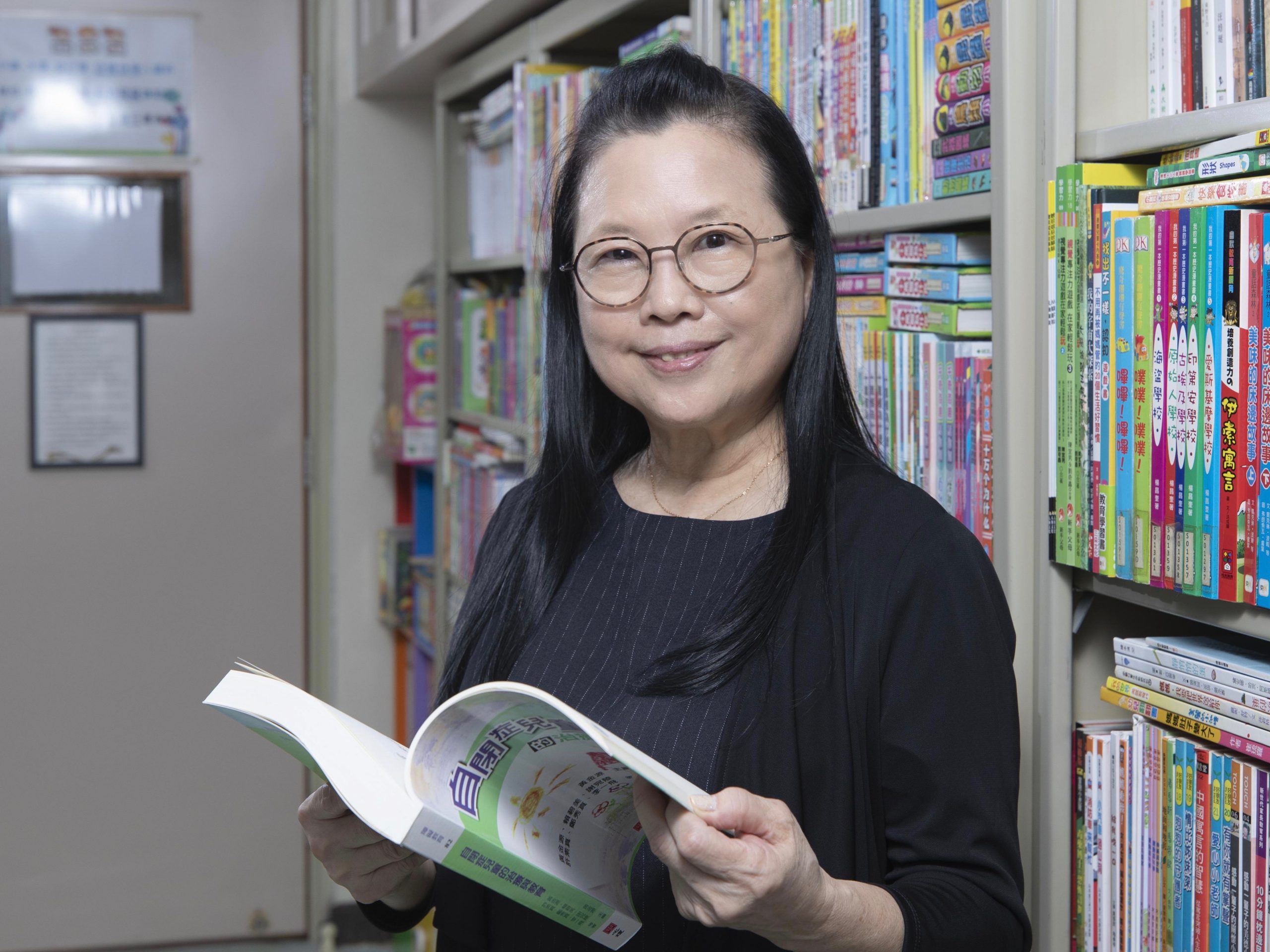
Lam Kim U
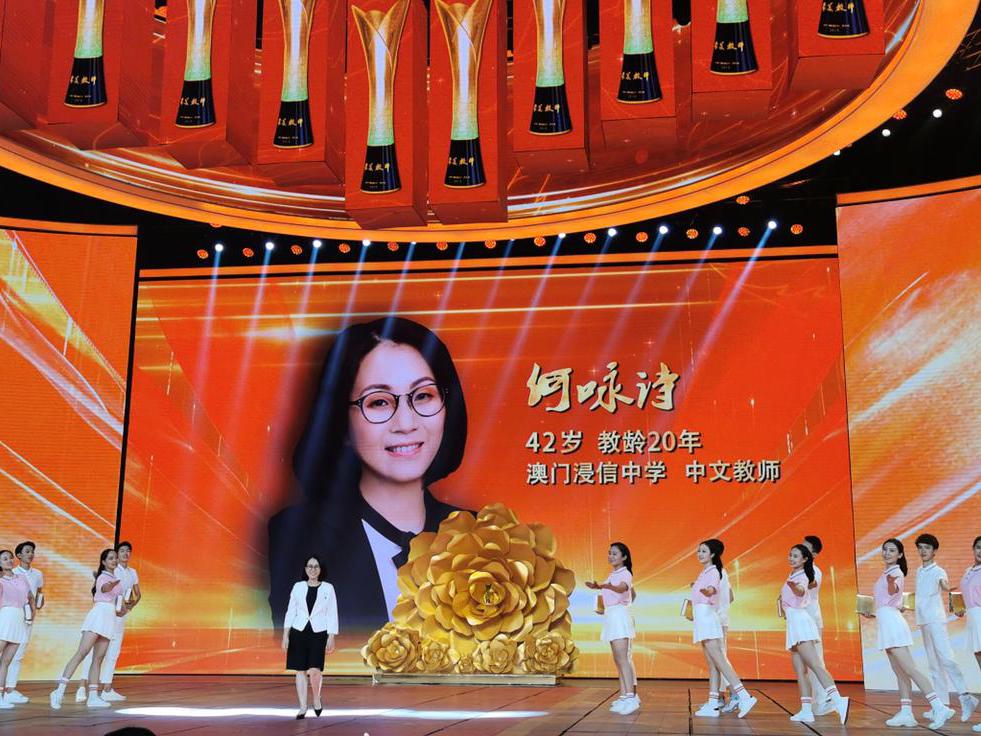
Ho Weng Si receives a best teacher award in China in 2019
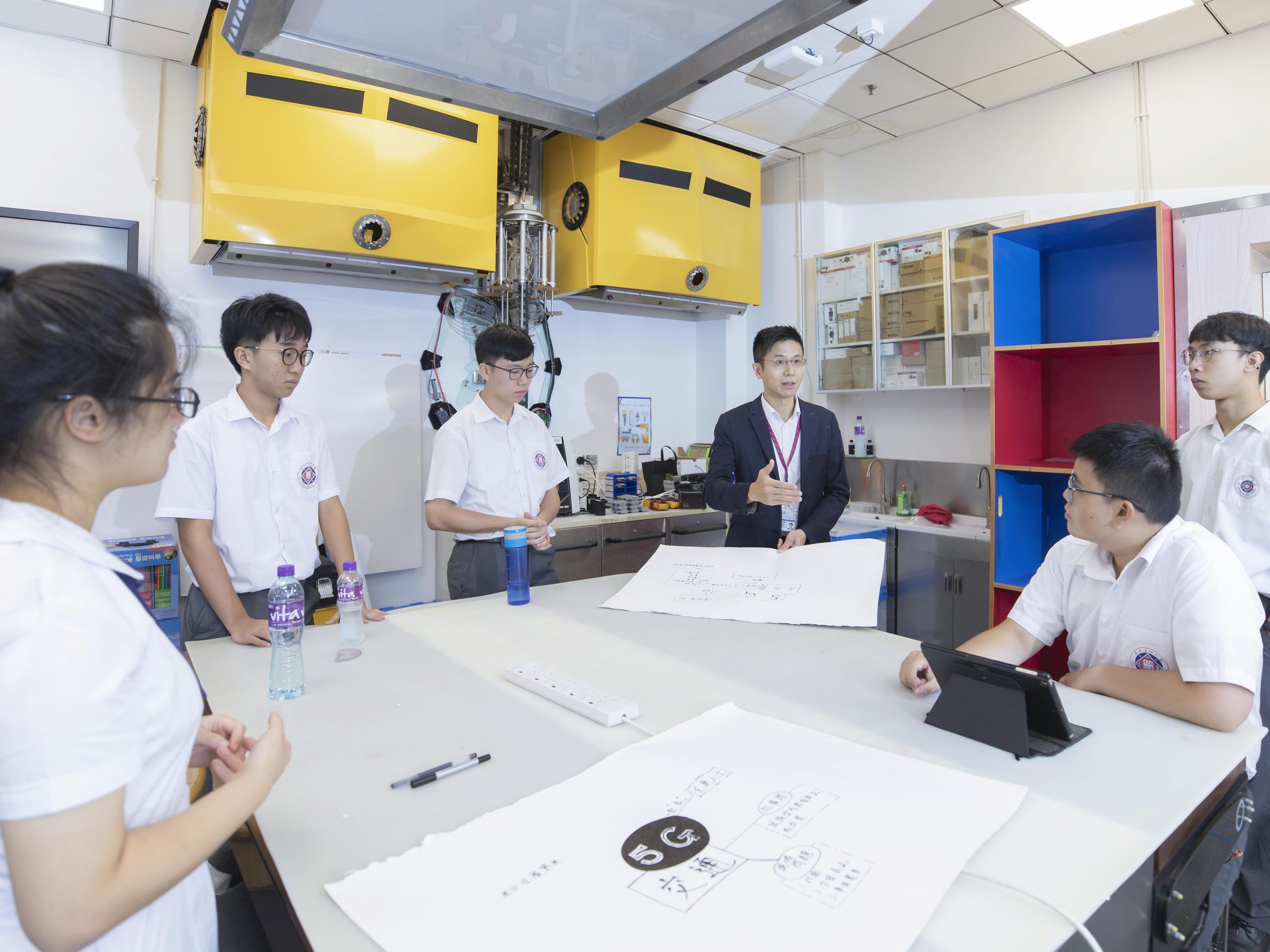
Chan Keng Lim (middle) shares experiences with his students

UM took up the responsibility of nurturing Chinese‐Portuguese bilingual talent during the transitional period leading up to Macao's handover
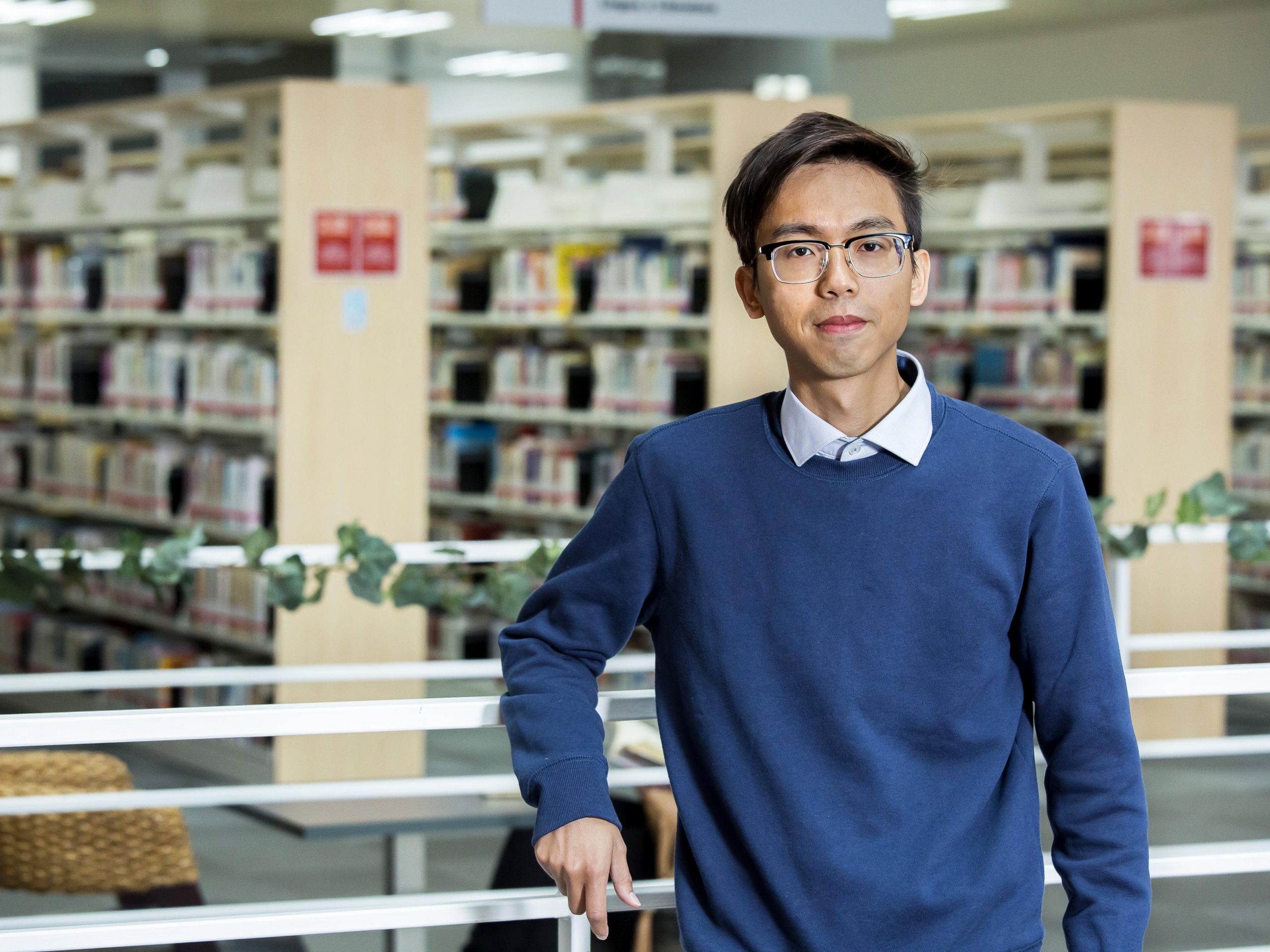
António Ip
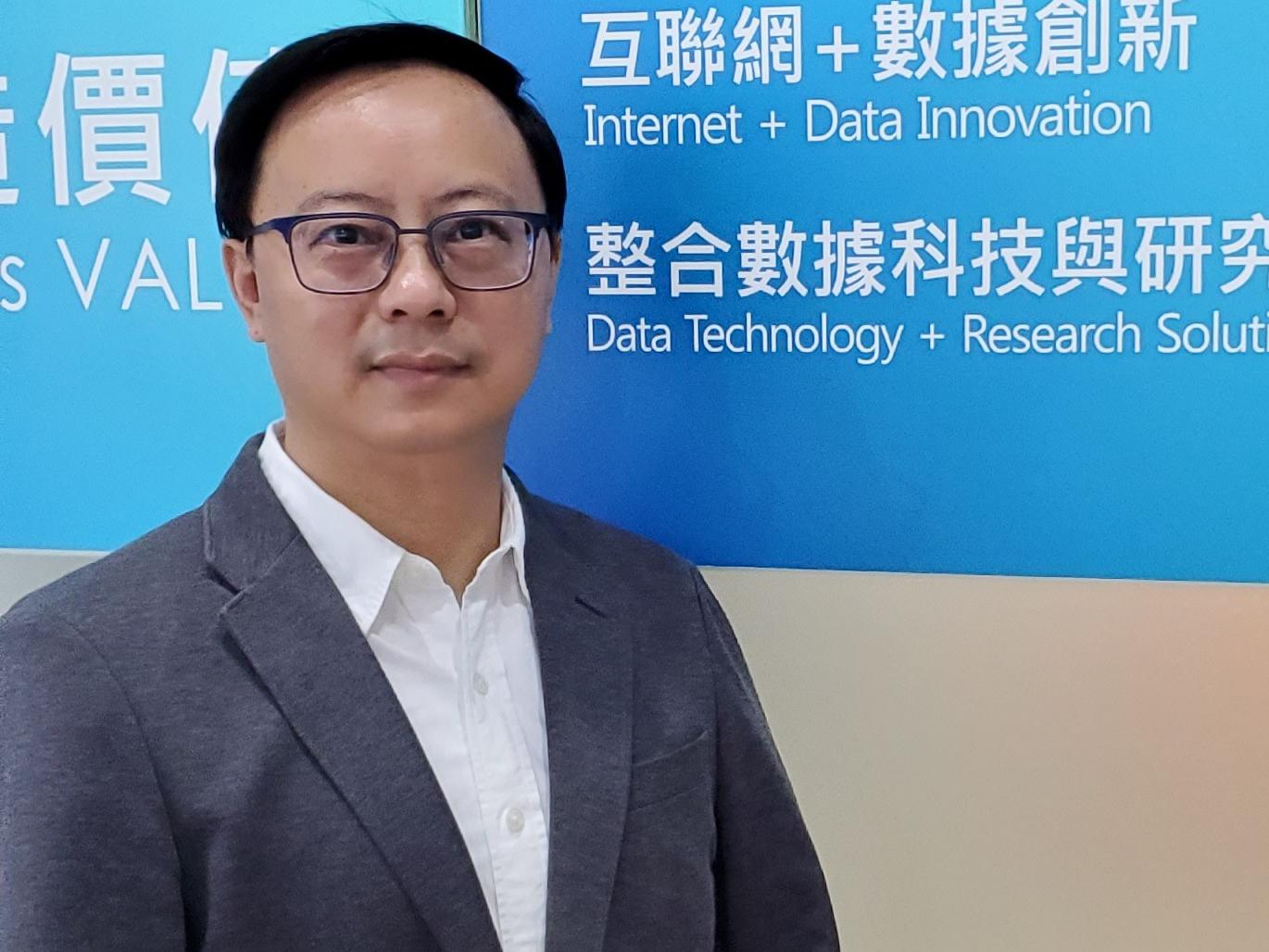
Angus Cheong
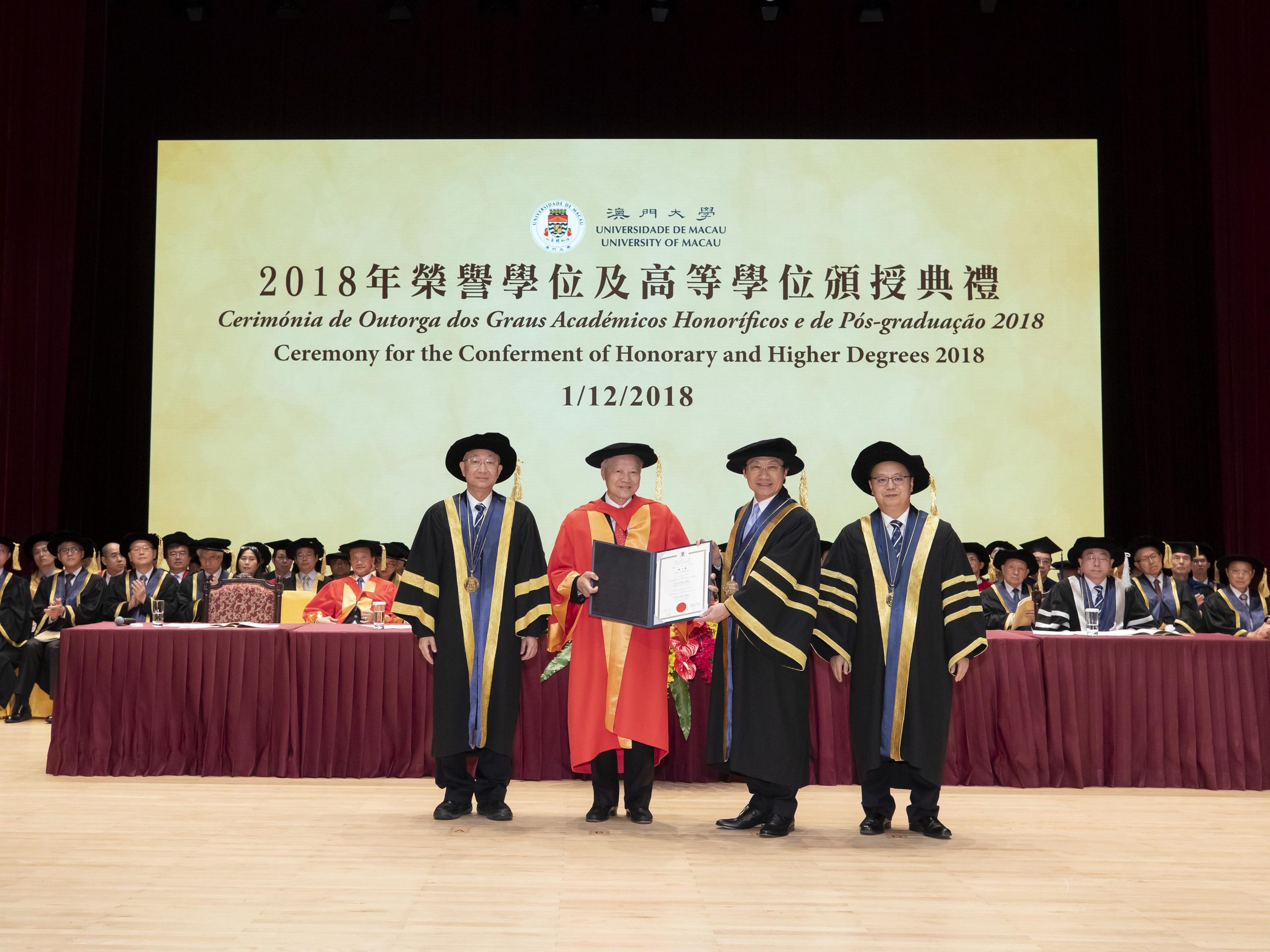
Anthony Lau (2nd from left) was conferred an honorary doctorate by UM in 2018
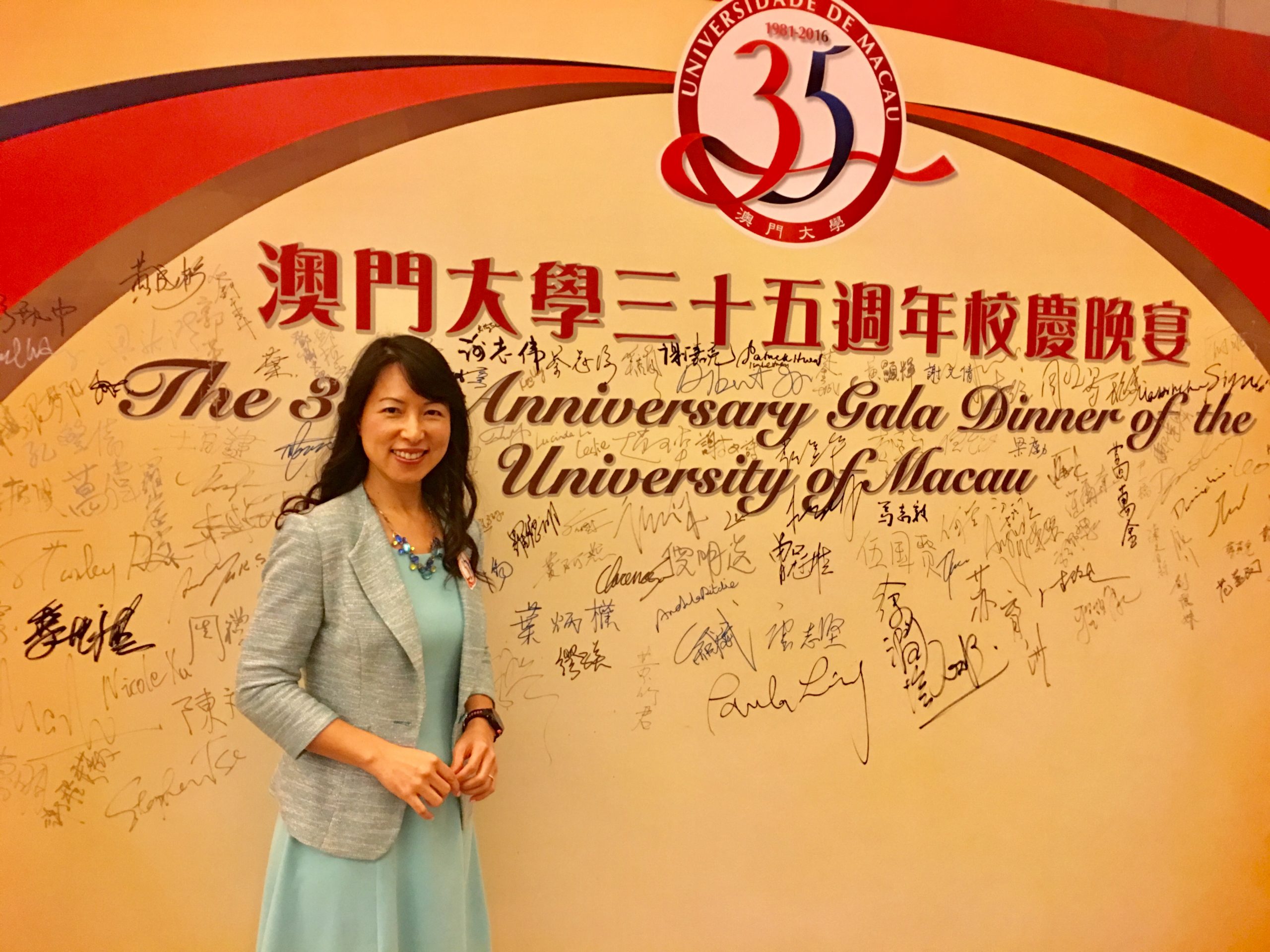
Victoria Mio
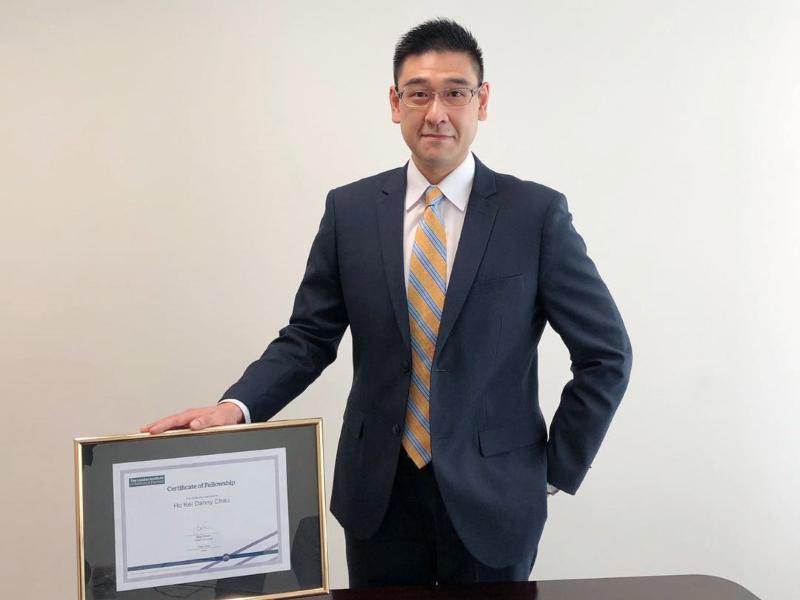
Danny Chau
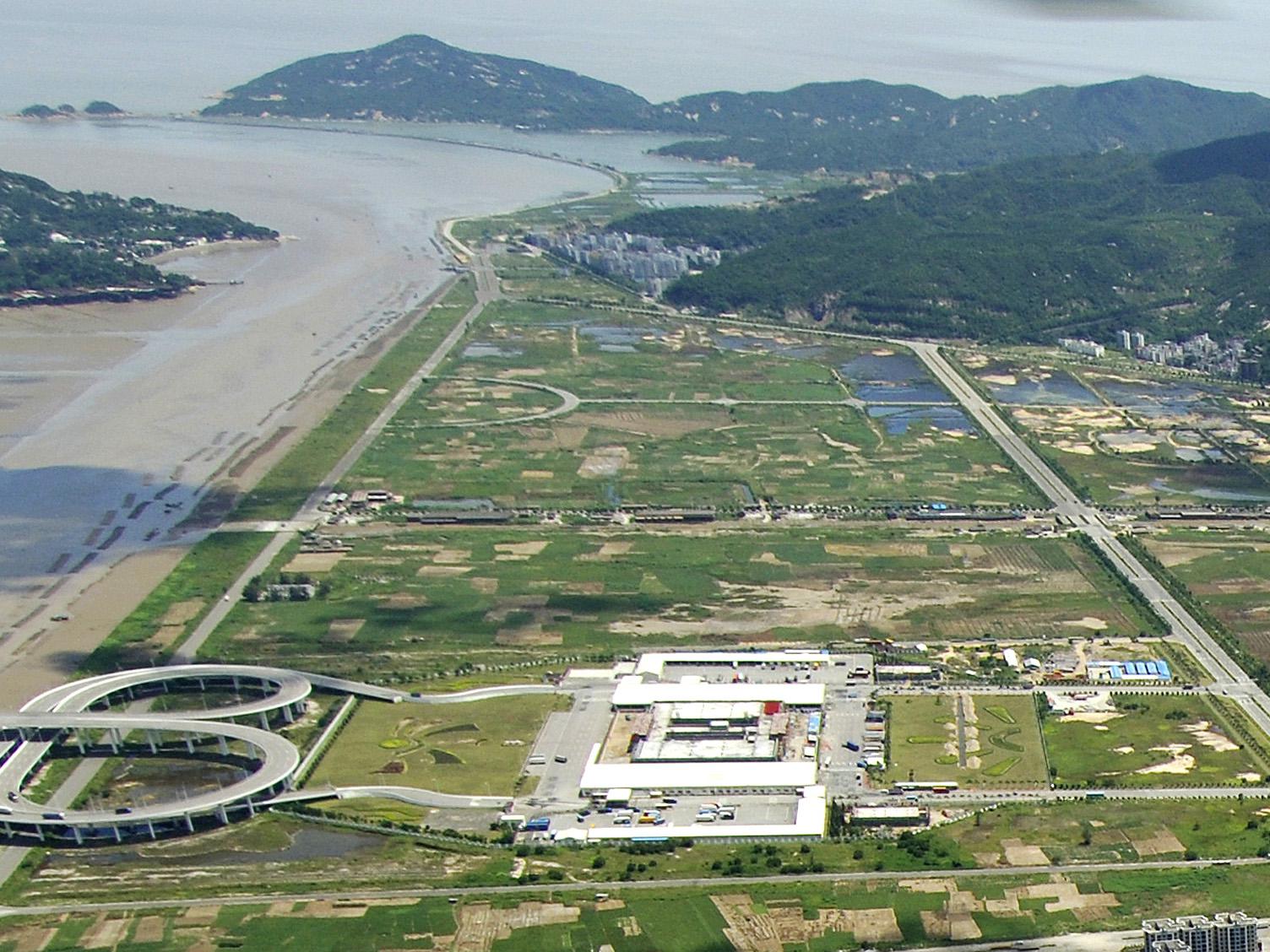
A panoramic view of the UM new campus before its construction, in 2009
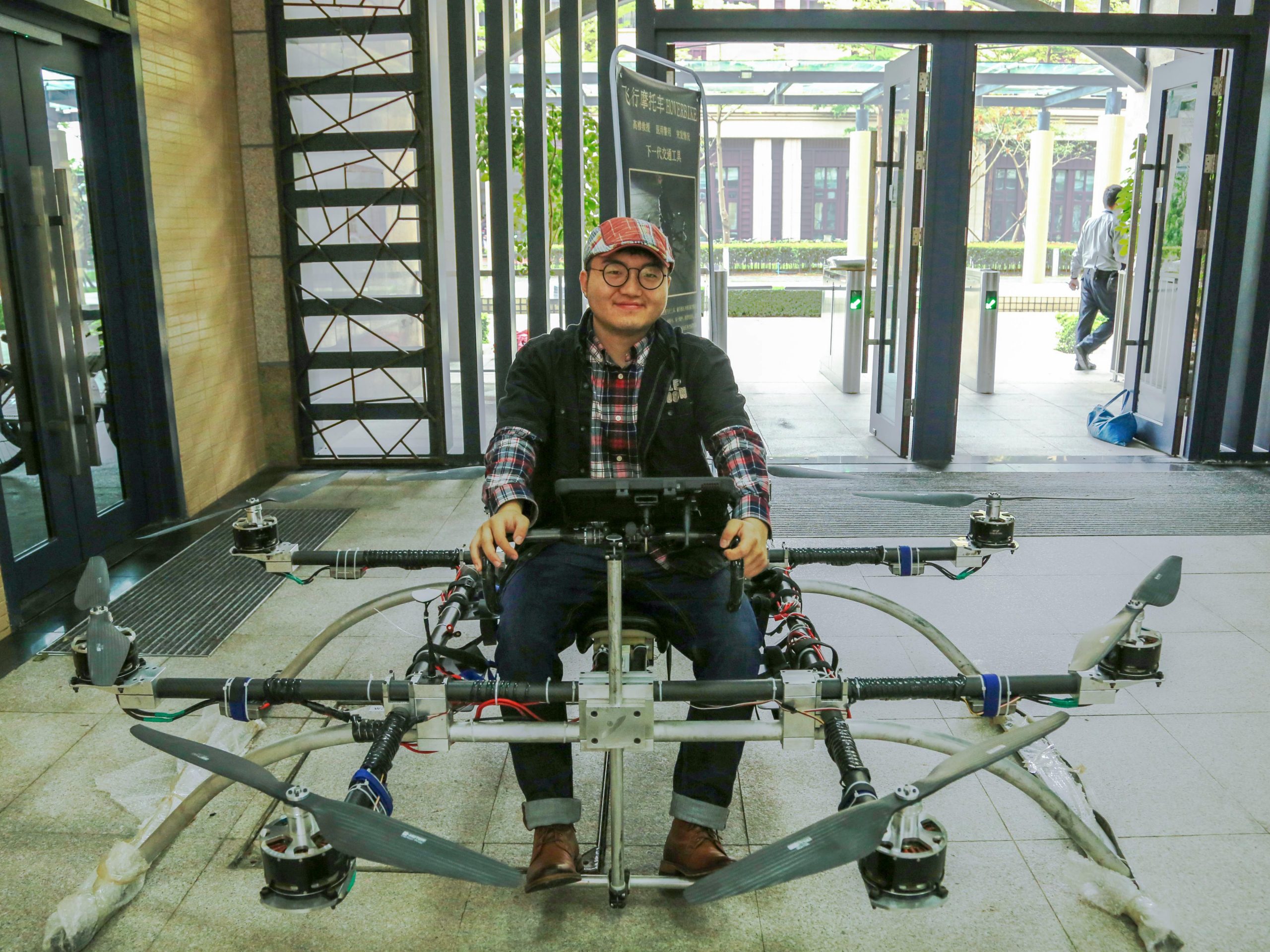
The flying motorcycle developed by Huber Hu
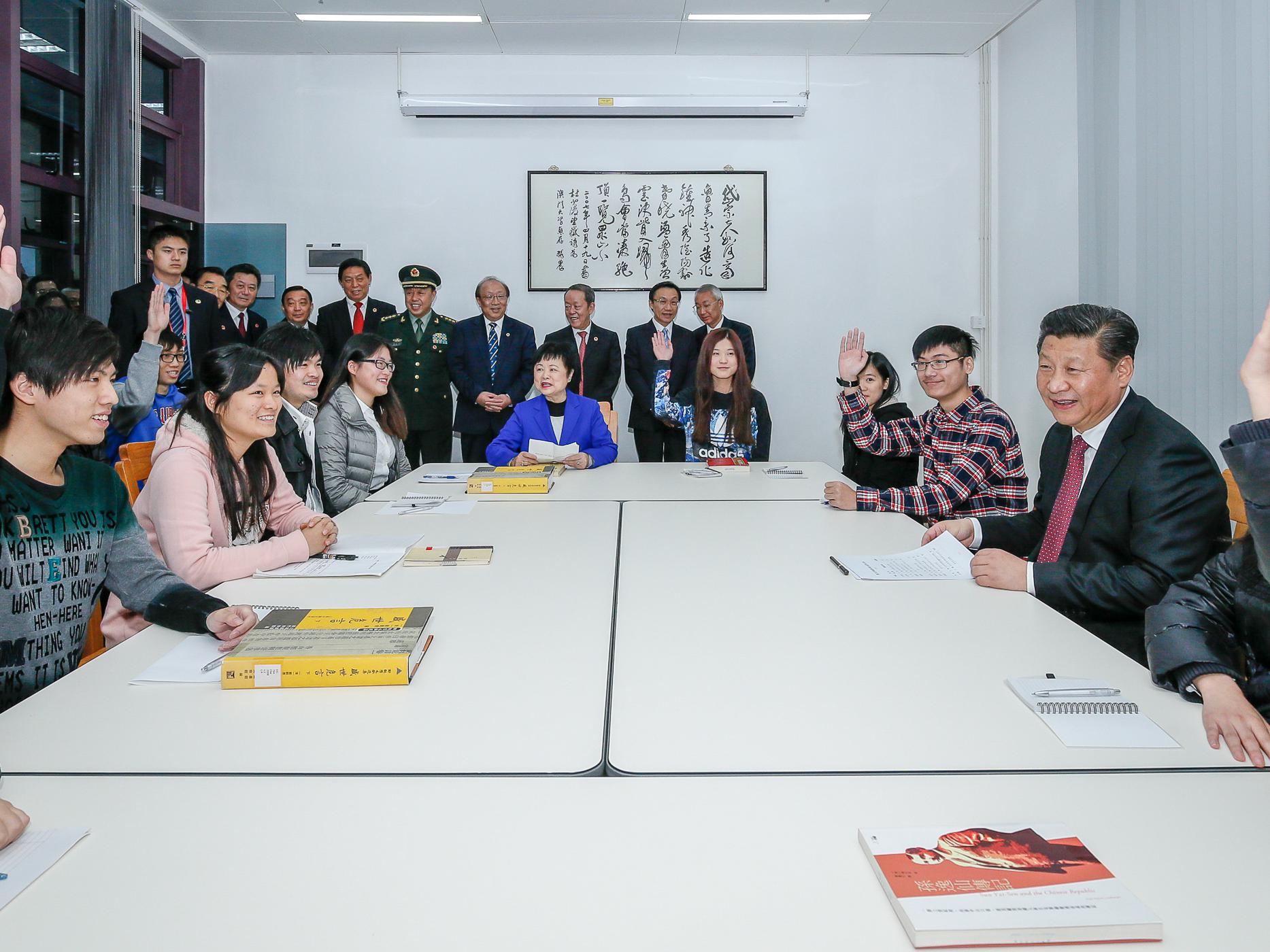
On 20 December 2014, President Xi Jinping had a discussion about Chinese culture with students in a residential college during his visit to UM.
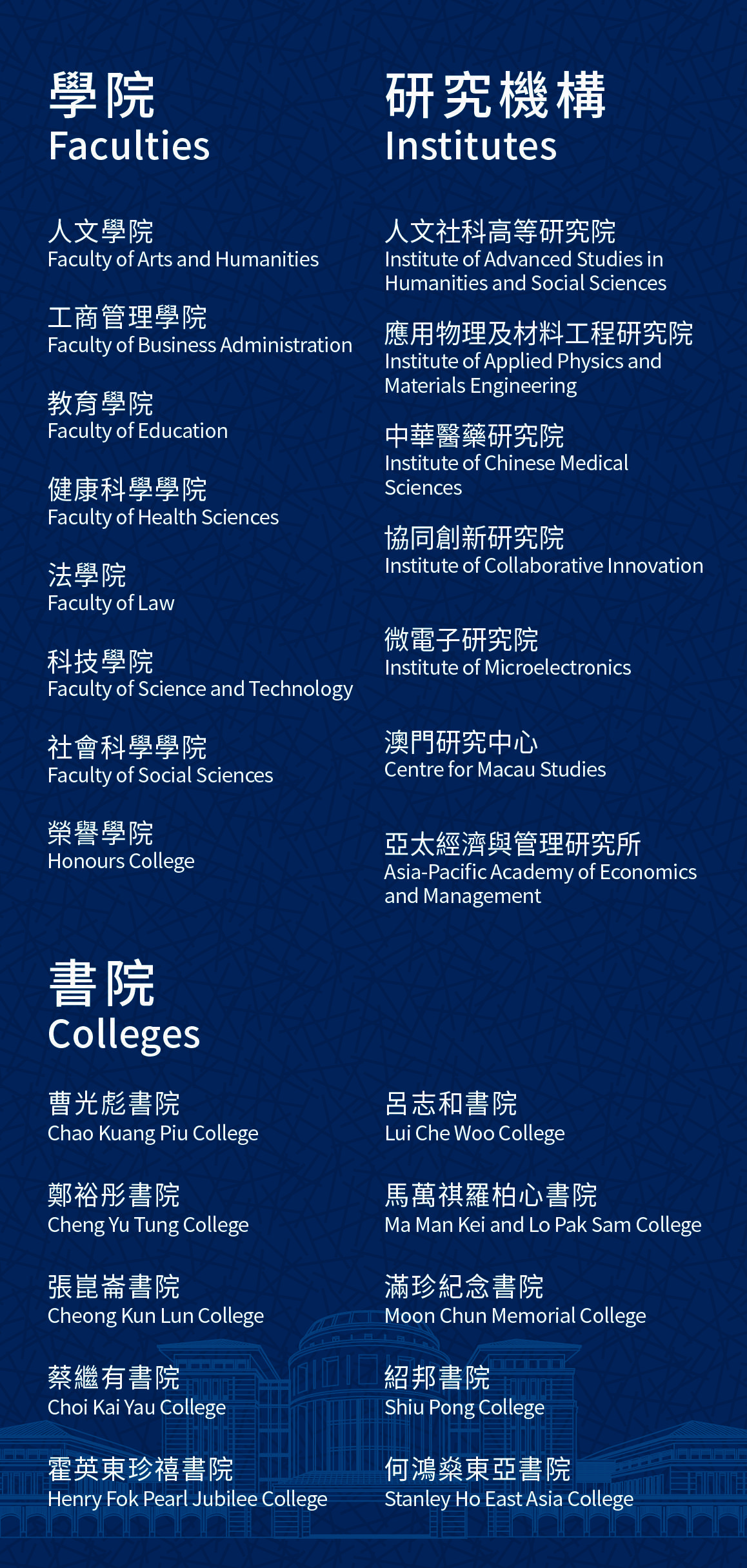
Faculties, institutes and colleges at UM
